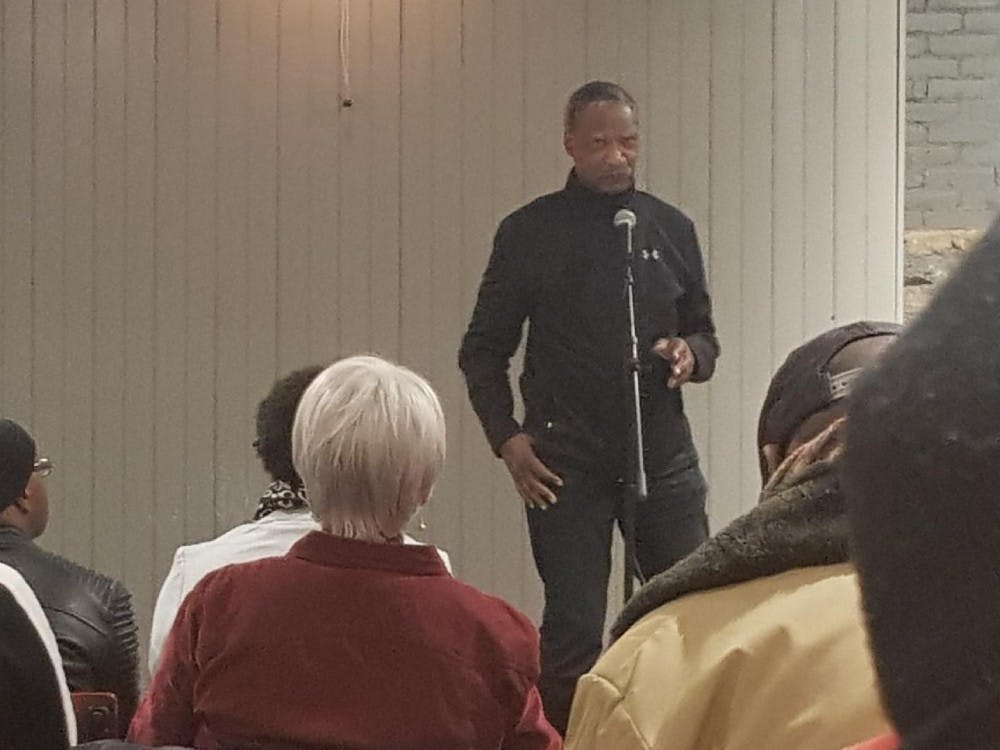Red Emma’s hosted an event celebrating 5 years of freedom for Marshall “Eddie” Conway, who had been previously incarcerated for forty-four years.
Conway is a member of the Baltimore chapter of the Black Panther Party, and was released after challenging his conviction for the murder of a police officer. During his years of incarceration, he spoke out for the rights of prisoners and created the Friend of a Friend program.
Once released, he became a leader in the Tubman House project and a producer for the Real News Network. Kevin James, manager of the Research Associates Foundation, moderated the event.
“[Conway] is someone who represented so much dedication and focus without sacrificing warmth and love,” James said. “He manages to stay focused and keep people inspired by being warm and by being approachable.”
The event aimed to celebrate the positive changes that Conway has had on the community. Some of the speakers were fellow organizers who have also worked to improve the community, like Rashida Foreman-Bey or “Mama Rashida,” who helps promote arts and theater programs in the Baltimore area. Other speakers had connections to Conway through his Friend of a Friend program and the Black Panther Party. All of the speakers expressed their gratitude for Conway for having changed their lives, either through direct help or through his programs.
Laura Whitehorn, a fellow activist who organized and participated in civil rights and anti-war movements spoke about her experience in a Baltimore prison, where she was told to talk to Conway to learn how to fight her case. She also noted their shared dedication for improving the community.
“We keep doing the work because the work needs to be done,” she said. “But you keep doing it and I keep doing it because it was the Black Panthers and the Black Liberation movement that gave me life and gave me a sense of how to change the things I hated in this country and that gave me a sense of what human beings could be.”
The final scheduled speaker was Conway. He explained that he was grateful for everyone who fought to get to help him get to a point where he could change. He also mentioned how after being released from prison, he saw that the current conditions in the community had deteriorated. This gave him the determination to work to improve Baltimore.
“I traveled down the streets of Baltimore and what I saw shocked me. The conditions have changed so much,” he said. “The Panthers came into being because we saw the conditions were bad and we organized. Fifty years later, the conditions are ten times worse.”
He ended his speech by urging the crowd to do their part to help the community, stating that this is a critical period of history, not just for the oppressed or black people, but for humanity. After he spoke, the event was opened to anyone who wanted to speak about their relationship with Conway.
The event sought to bring the Baltimore community together in order to celebrate one of its important figures. James said that he believes it is essential for Baltimore community members to acknowledge Conway’s actions and to thank him. He also talked about how he viewed the continued work of Conway.
“The fact that you’re still out, still here, still committed, still showing up all the time. That’s something that has to be acknowledged,” he said. “If we’re acknowledging and celebrating business leaders for making lots of money, we should be celebrating people who are fighting for equality. We are trying to address inequality.”
The co-founder of Red Emma’s, John Duda, also commented on the event. He expressed the significance of remembering Conway and what he has done for the community to make sure that his voice and the voice of those who have been unjustly incarcerated could be heard.
“Just seeing those networks: the international, the national network, the people who weren’t able to be here who dialed in from prison or sent messages with loved ones, who delivered from prison. It just testifies to the reach that he’s had, the role he’s played in being a beacon of work in the city,” he said.





